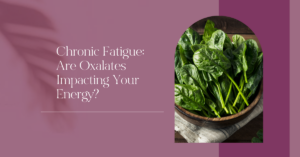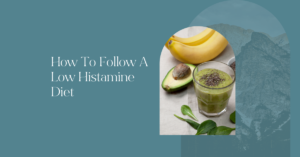Contrary to popular belief, energy is not something that can really be obtained from an extra strong coffee or a good sugar hit.
Do caffeine and sugar boost energy in the short term? For some people, yes. However, in the context of creating sustainable energy to meet the demands of the day, day after day, month after month and year after year, we need to take a different approach.
This approach is supporting and optimising the systems of the body that make energy and therefore we want supplements that enhance the functioning of your cellular engine.
You might be wondering if certain supplements, vitamins or minerals can increase your energy and help you feel better, more focussed and productive.
The answer to this question is both yes and maybe. The exact answer will depend on context and in order to understand the context, you want to understand, on a basic level, how we make energy.
How is Energy Produced?
Energy is produced when we can take nutrients from our food (protein, fat and carbohydrate), transport these nutritional components firstly into the cell and then into the mitochondria of the cell.
Once we have what we need inside the mitochondria we use oxygen plus vitamins and minerals which are used to make electrons in which is known as the Citric Acid or Krebs Cycle.
Electrons are transported along the electron transport chain, located on the mitochondria membrane and from this process we make, ATP, the body’s energy currency.
Nutrients that support this chain of events and the transportation of oxygen from the air into the cell may have a positive impact on energy. So let’s look at which nutrients are important for each step:
Oxygen Delivery; Vitamin B12, Folate, Vitamin B6 and Iron
Oxygen is transported around the body in red blood cells. Healthy red blood cells rely on adequate dietary intake and absorption of Vitamin B12, Folate, Vitamin B6 and Iron.
Therefore, if someone is low in any or all of these nutrients, this can negatively impact energy and, supplementing with the specific nutrient required can improve red blood cell quality, tissue oxygen and energy.
- A full blood count can tell you whether or not you have healthy red blood cells.
- An Iron Panel which includes Ferritin can tell you if you have enough iron (I like to see Ferritin above 50ug/L for my fatigue recovery clients)
- It can be hard to know if you need Vitamin B12, Folate, Vitamin B6 or a combination of these nutrients which is why I am a big fan of Organic Acids testing. I frequently use this test with my fatigue recovery clients and there is usually always at least 1 nutrient that is required, and sometimes all 3!
The Oxidation of Macronutrients (proteins, fats and carbohydrates)
This is the first step of macronutrient metabolism where proteins, fats and carbohydrates are broken down into acetyl-CoA which will later enter the Citric Acid Cycle for further energy production. This step must work effectively because it feeds into the other steps of the cycle.
It requires:
- Vitamin B1
- Vitamin B2
- Vitamin B3
- Vitamin B5
- Magnesium
- Carnitine
An Organic Acids test can assess how well this process is working and help you identify specific nutrients that may be beneficial for you.
Cellular Respiration, known as the Citric Acid Cycle or Krebs Cycle
This stage of energy production happens in the Mitochondria. This is an organelle within every cell that you can think of as an energy making factory. Here electrons are produced by converting acids in a series of steps.
This conversion requires adequate amounts of:
- Vitamin B1
- Vitamin B2
- Vitamin B3
- Magnesium
- Manganese
- Iron
We already know that you can test your iron levels using an iron panel. You can also test how well these steps are working using an Organic Acids test and this can help you identify if you need more of a certain B vitamin or a mineral like Magnesium or Manganese.
If you don’t have access to testing, a good quality B-vitamin and a Magnesium supplement could be beneficial.
Oxidative Phosphorylation, also known as the electron transport chain
The most amount of energy (ATP) is produced when electrons from the citric acid cycle travel along the electron transport chain. Therefore, we definitely want this chain to be working well and this requires:
- Vitamin B2
- Vitamin B3
- Vitamin C
- Vitamin K1
- Vitamin E
- Magnesium
- CoQ10
- ɑ-lipoic acid
- Iron
In summary, what are the best supplements that can support and sustain energy?
- B-vitamins; B-vitamins often act in synergy so a good quality B-complex can work well and you can take extra of isolated B-vitamins you may need more of.
Foods High in B-Vitamins are: liver and organ meats, salmon, eggs, beef, leafy green vegetables, wholegrains
- Magnesium; magnesium is involved in all the steps of ATP production and therefore, this is a good all-rounder that could support your energy.
Foods High in Magnesium are: leafy greens, nuts and seeds, wholegrains and dark chocolate
- Iron; iron is another nutrient that is required in almost all steps of energy production, including making healthy red blood cells. Excessive iron can be potentially harmful to energy production so I highly recommend testing your iron levels and only supplementing if necessary.
Iron rich foods are: liver and animal meats. Vegetarian sources of iron include soybeans, lentils, tofu, blackstrap molasses, quinoa, chickpeas, pinto beans, black eyed peas, swiss chard, tempeh, black beans, turnip greens, prune juice, spinach, beet greens, tahini, lima beans, sunflower seeds, dried figs, dried apricots.
- Carnitine; carnitine plays an important role in getting fatty acids into the cells and therefore, if low, supplementation with carnitine can be incredibly beneficial. If you haven’t done an organic acid test you can try and see.
Food sources of Carnitine: meat, fish and poultry
- CoQ10; CoQ10 is a very important transporter of electrons along the electron transport chain. If CoQ10 is low, electron transport will be poor, as will ATP / Energy production.
Food sources of CoQ10: oily fish, organ meats (especially heart and liver), whole grains
Two Bonus Supplements
If I was to give two bonus supplements that can also make a big difference in energy I would recommend:
- Creatine
- D-Ribose
Creatine
Creatine is one of the most well documented ergogenic aids in the sporting world with plenty of evidence that it supports muscle strength, size and performance. An often unknown fact is that creatine may also be beneficial for brain health; specifically for cognitive processing, brain function and recovery from trauma.
Creatine is part of the ATP-PC energy system, which is our short term and most accessible energy system that dominates in short intense bouts of activity (1-30 seconds).
But the ATP-PC system also bridges the gap to our sugar burning intermediate energy system (glycolysis) which means that in reality we are constantly recycling energy via the ATP-PC system. This supports energy availability during exercise (but for those recovering from chronic fatigue conditions, I would personally add, life!).
Creatine supplementation may have a positive impact on brain energy, increasing its production AND usage specifically in the frontal lobe which controls mood, cognition, memory, and emotion.As creatine energises the frontal lobe, there is decreased activity in the amygdala, the fear centre of the brain.
D Ribose
D-Ribose is a naturally occurring sugar that is found in all cells, particularly in the mitochondria (energy factories). It is essential for energy / ATP production.
Supplementing with D-Ribose may support ATP production and research has shown it to be beneficial in Chronic Fatigue Syndrome, Fibromyalgia, Myocardial Dysfunction and Athletic Performance (for reducing cramping, pain, soreness and stiffness).
A study 203 participants supplemented with D-ribose for 3 weeks and the following results were documented, also using a Visual Analog Scale (1-7 points);
- ↑energy 66%
- ↑wellbeing 37%
- ↑sleep 29.3%
- ↑mental clarity 30%
- ↓ pain 15.6%
These results are pretty impressive and do pose a strong argument for the use of D-ribose in fatigue and fibromyalgia.
Reference:










